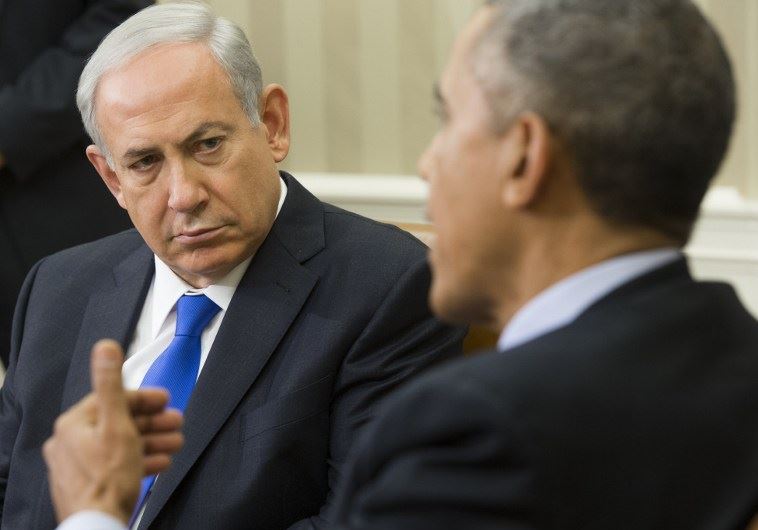Yes, we can separate!
As a matter of principle, I do not believe relations between friendly states should be managed on television, via the Internet or in the press.
 Prime Minister Benjamin Netanyahu (L) listens to US President Barack Obama in the Oval Office(photo credit: AFP PHOTO)
Prime Minister Benjamin Netanyahu (L) listens to US President Barack Obama in the Oval Office(photo credit: AFP PHOTO)